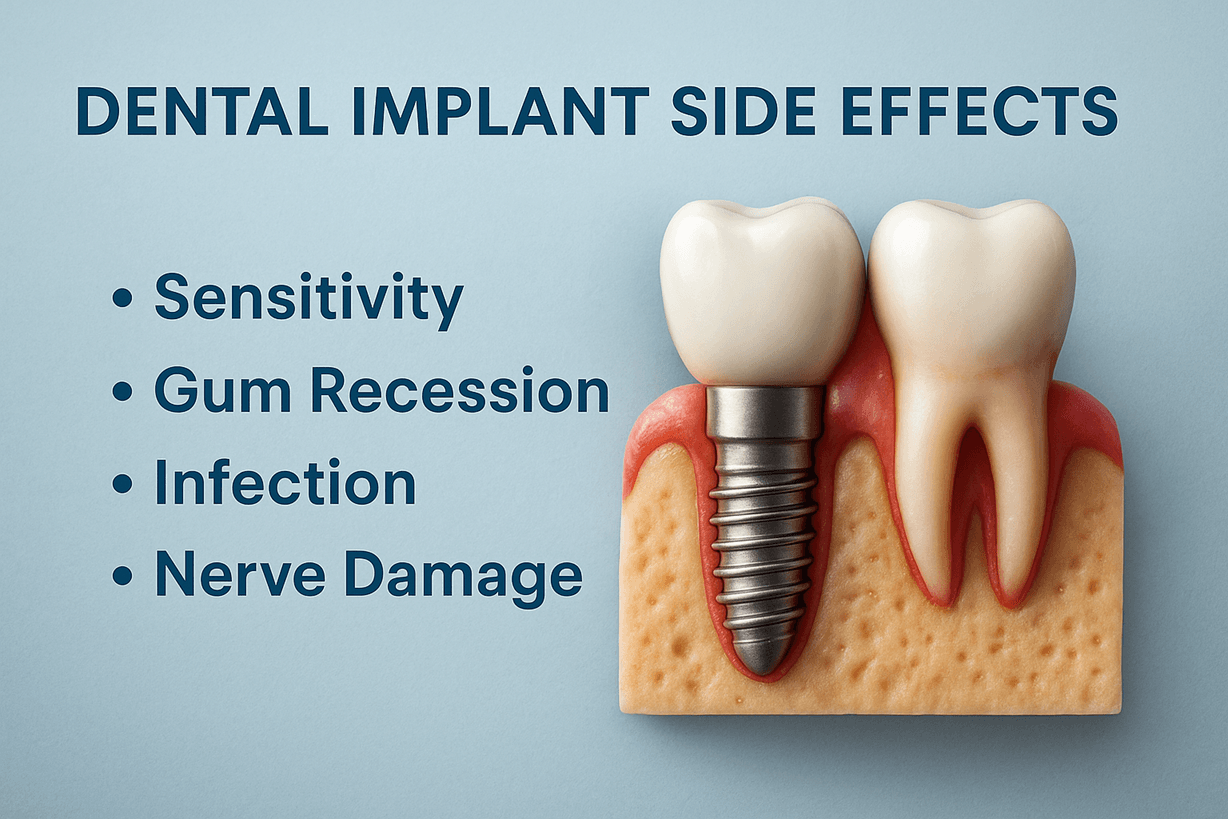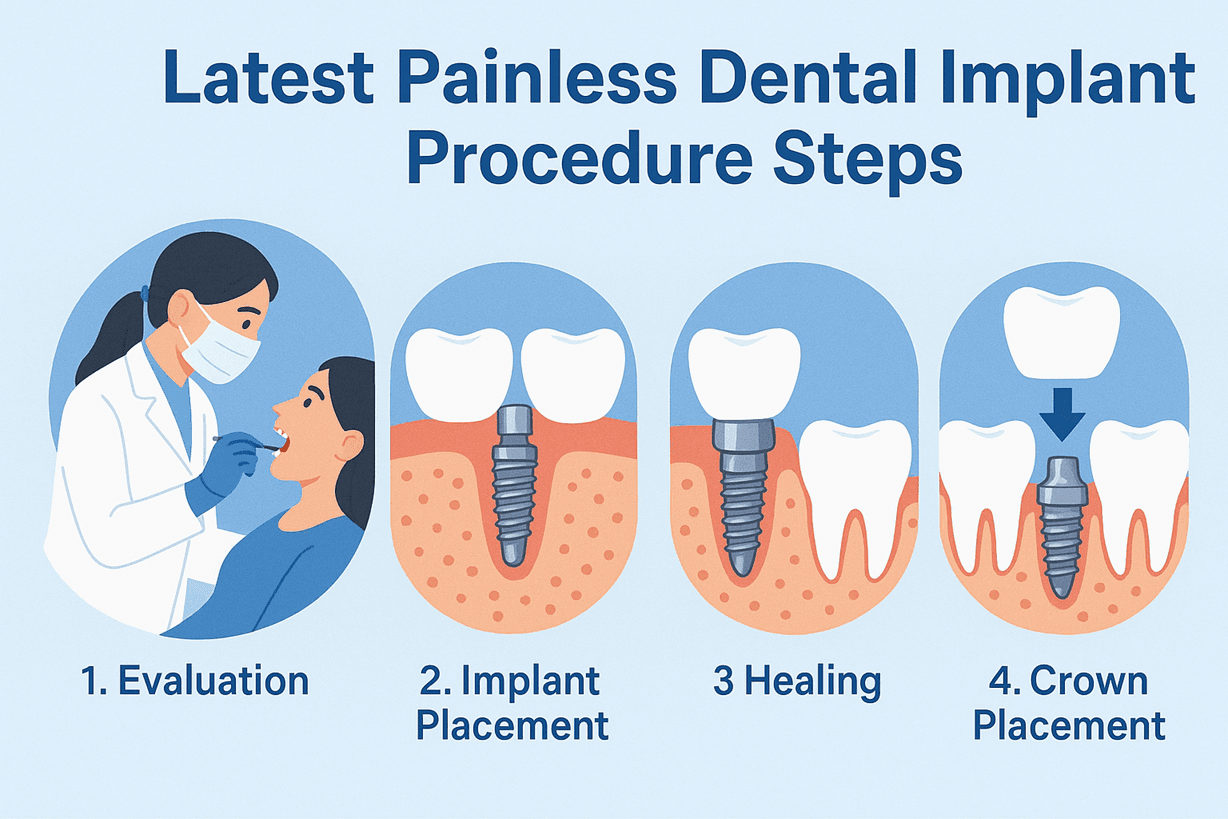Contents
- What are the Side Effects of Root Canal Treatment?
- 1. Pain and discomfort
- 2. Swelling and Inflammation
- 3. Sensitivity to Hot and Cold Temperatures
- 4. Discolouration of the Tooth
- 5. Infection
- Are There Any Health Risks Associated with Root Canal Treatment?
- How Does Root Canal Treatment Affect Your Health?
- Things to Consider Before Undergoing a Root Canal Procedure
- The cost of the procedure:
- The level of pain and discomfort:
- The potential risks and side effects:
- The alternative treatments:
- Tips for Preventing Risks and Side Effects from Root Canals
- Alternatives to Root Canal Therapy
- Conclusion
- Frequently Asked Questions
- Can root canals cause health problems?
- What are the side effects of a root canal?
- Can a root canal cause problems years later?
- How long does it take to recover from a root canal?
- Can a root canal cause nerve damage?
- What is the failure rate of root canals?
- What should I avoid after a root canal?
- What problems can root canals cause?
- How do I know if my root canal failed?
- Is the dentist responsible for the failed root canal?

A dental procedure called a root canal is used to remove infected or damaged pulp tissue from inside a tooth. To stop the tooth and surrounding tissues from suffering additional harm or infection, this surgery is required.
Even though root canal therapy is typically regarded as safe and effective, patients should be aware of some potential dangers and adverse effects.
In this article, we'll examine the possible hazards and negative effects of getting a root canal, as well as talk about how to avoid them and possible alternatives.
What are the Side Effects of Root Canal Treatment?
Root canal therapy has potential negative effects for certain people, just like any other medical procedure. The following are a few of the procedure's most frequent negative effects:
1. Pain and discomfort
During and after the procedure, patients may feel some pain or discomfort. Painkillers sold over the counter can be used to treat this because it is typically minimal.
2. Swelling and Inflammation
Around the tooth that has undergone treatment, some individuals may feel swelling and inflammation. With the use of ice packs and over-the-counter anti-inflammatory drugs, this is typically transitory and may be handled.
3. Sensitivity to Hot and Cold Temperatures
For a few days following the treatment, patients may suffer heightened sensitivity to hot and cold temperatures. Usually just temporary, this should go away on its own.
4. Discolouration of the Tooth
A tooth that has had root canal therapy occasionally has a discolored appearance. Internal bleeding is typically the root of this, which cosmetic dental procedures can address.
5. Infection
Although it is unlikely, there is a chance of infection following root canal therapy. Bacteria frequently enter the tooth through a crack or other injury to produce this.
Patients should get in touch with their dentist right once if they have infection-related symptoms including fever, oedema, or excruciating pain.
Are There Any Health Risks Associated with Root Canal Treatment?
The question of whether receiving a root canal could be harmful to a patient's general health has generated some debate in recent years.
Some individuals think that the germs that can exist in a tooth having root canal therapy can travel throughout the body and result in other health issues. However, there is no scientific proof to back up this assertion.
In fact, studies have shown that a root canal operation can help patients keep their original teeth and avoid the need for more invasive procedures like tooth extraction.
Patients who are worried about the possible health hazards of receiving a root canal should discuss their worries with their dentist and request more information.
How Does Root Canal Treatment Affect Your Health?
By conserving a patient's original tooth and halting the progression of illness, root canal therapy can benefit a patient's general health. An untreated tooth infection can result in discomfort, swelling, and other medical issues.
In some instances, the infection may spread to other bodily regions and result in life-threatening conditions like sepsis.
Root canal therapy can help stop the progression of illness and save the tooth by removing the affected pulp tissue and sealing the tooth.
By doing so, a patient's general oral health can be enhanced and the requirement for more invasive procedures like tooth extraction or dental implants can be avoided.
Things to Consider Before Undergoing a Root Canal Procedure
There are various factors that patients should think about before having a root canal operation. These consist of:
The cost of the procedure:
The cost of a root canal procedure may be high, particularly if the tooth also needs a crown or filling.
The level of pain and discomfort:
While root canal treatment is generally not painful, some patients may experience discomfort during and after the procedure.
The potential risks and side effects:
Before having a root canal, patients should be informed of the possible risks and side effects and discuss them with their dentist.
The alternative treatments:
Several treatments are good alternatives to root canal treatment such as
- Direct Pulp Capping
- Pulpotomy
- Tooth Extraction with either one of these (Dental Implants, Dental Bridges, and Removable partial dentures)
Tips for Preventing Risks and Side Effects from Root Canals
Even though root canal therapy is typically regarded as safe and successful, there are a few possible hazards and adverse effects. Patients can take precautions to reduce these risks and adverse effects, though.
Selecting a dentist with root canal experience who is adept at using cutting-edge methods and technology is one of the most crucial stages.
Patients should carefully follow the post-treatment advice provided by their dentist, which may include taking any prescribed medications and avoiding hard or chewy foods for a few days.
In addition, patients can practise good oral hygiene by seeing their dentist for routine examinations and cleanings and brushing and flossing their teeth regularly.
This can help prevent infections and other oral health problems that can lead to the need for root canal treatment.
Alternatives to Root Canal Therapy
In some circumstances, individuals who cannot or do not want to receive root canal therapy may be able to receive alternative therapies.
The removal of the entire tooth is one possibility, which is tooth extraction. Even though it might be the easier and more affordable choice, shifting teeth and jawbone loss are only a couple of the additional dental health issues it can cause.
A dental implant is an additional option that entails replacing the damaged tooth with a false tooth. Although this alternative may be more expensive, it may also be a more long-lasting one that keeps the patient's original teeth and jawbone.
Conclusion
Even though root canal therapy is typically regarded as safe and successful, patients should be aware of any potential dangers and side effects before having the surgery done.
Patients can decide whether root canal therapy is the best option for their oral health needs by taking into account the criteria covered in this blog.
Patients can also lessen the risks and adverse effects of this operation by adhering to their dentist's advice and practicing proper dental hygiene.
Finally, there may be alternate therapies available for patients who cannot or do not want to receive root canal therapy.
Frequently Asked Questions
Can root canals cause health problems?
In general, root canals do not cause health problems. Root canal treatment is a common dental procedure used to save a tooth that has become infected or damaged deep within the pulp, which is the soft tissue inside the tooth. Without treatment, the infection can spread, leading to pain, swelling, and eventually tooth loss.
While the procedure itself does not typically cause health problems, there is a small risk of complications. These can include:
Incomplete removal of infected tissue: If the dentist does not completely remove all the infected tissue from the tooth, the infection may persist and lead to further complications.
Damage to surrounding tissue: During the procedure, there is a risk of damage to the surrounding tissues, such as the gums, nerves, or blood vessels.
Re-infection: If the tooth is not properly sealed after the root canal, bacteria can enter and cause a new infection.
Allergic reaction to materials used: In rare cases, a patient may have an allergic reaction to the materials used during the procedure.
Overall, root canals are a safe and effective treatment for infected or damaged teeth. If you have concerns about the procedure, it's best to speak with your dentist or endodontist to discuss any potential risks or complications.
What are the side effects of a root canal?
Some possible side effects of a root canal procedure include mild pain or discomfort, swelling or tenderness in the surrounding tissues, and temporary sensitivity to hot or cold temperatures.
In rare cases, complications such as infection or nerve damage may occur. However, most patients experience a relatively smooth recovery from the procedure.
Can a root canal cause problems years later?
Yes, if any problems with the tooth or the tissues around it were not adequately treated during the first treatment or if new difficulties develop over time, a root canal might potentially cause complications years later.
To identify and manage any potential difficulties early on, it is crucial to maintain proper oral hygiene and attend routine dental checkups.
How long does it take to recover from a root canal?
The recovery time after a root canal can vary, but typically it takes a few days to a week for the tenderness and swelling to subside.
Can a root canal cause nerve damage?
Although extremely unlikely, nerve injury during a root canal operation is a possibility. Modern methods and developments in dental technology have significantly decreased the likelihood of this happening, though
What is the failure rate of root canals?
The location of the tooth, the severity of the infection, and the patient's general dental health are some examples of variables that can affect the root canal failure rate. However, 5-10% of root canal procedures fail on average.
What should I avoid after a root canal?
You should refrain from eating or drinking anything hot or cold after having a root canal, as well as from smoking or using tobacco products. It's also crucial to adhere to any particular aftercare guidelines your dentist or endodontist may have given you.
What problems can root canals cause?
- Root canals can cause several problems, including:
- Pain and discomfort
- Infection or abscesses
- Numbness or tingling sensation
- Damage to surrounding tissues
- Fracture or breakage of the tooth
- Incomplete removal of infected tissue
- Recurring infections or re-infections
How do I know if my root canal failed?
A failed root canal may be the cause of extreme pain, oedema, or sensitivity in the tooth that has been treated. Other symptoms include drainage, an unpleasant taste or odour, and tooth damage that can be seen. If you suspect a root canal failure, it's crucial to talk to your dentist.
Is the dentist responsible for the failed root canal?
The dentist may be held accountable if a root canal operation fails as a result of the dentist's carelessness or lack of expertise. Despite the dentist's best efforts, a root canal can occasionally fail for reasons beyond their control, such as the complexity of the situation or the patient's particular anatomy. Discuss any worries you have with your dentist and, if necessary, get a second opinion.


